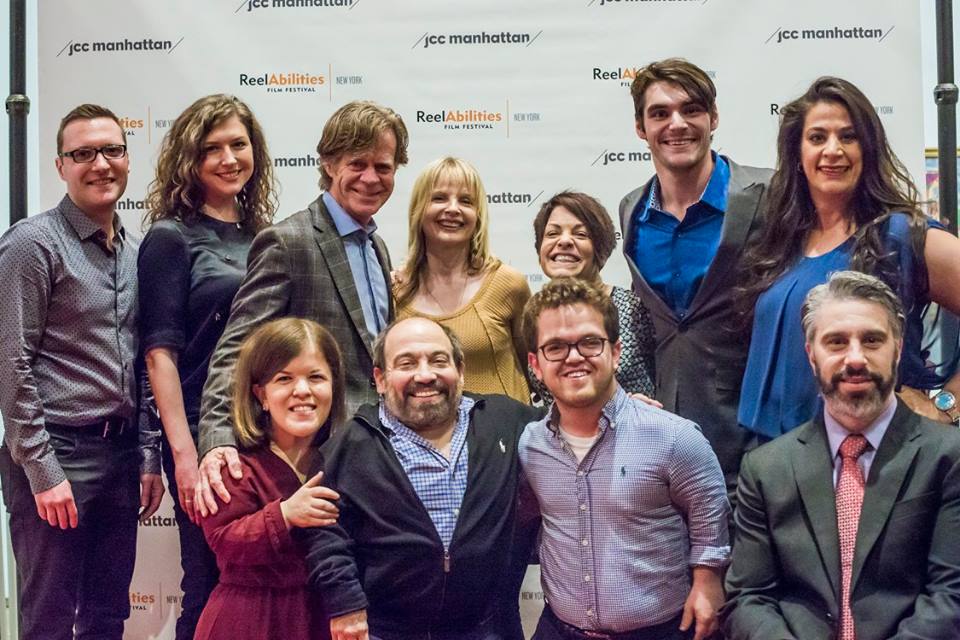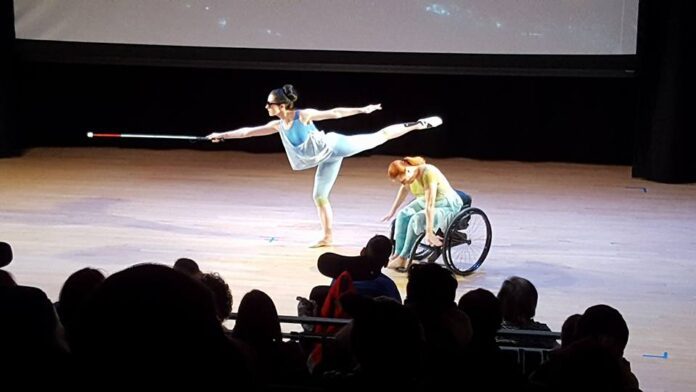Media influences perceptions and, in a way, shapes reality – consciously and subconsciously. Isaac Zablocki, Director of Film Programs at JCC Manhattan, penned an article for Huffington Post about disability in media and explained,“If we do not see people with disabilities in our entertainment, we will also have trouble envisioning them appropriately in our community. Furthermore, if we do not see appropriate depictions of people with disabilities, the public will only see disabilities as the hero or villain stock types Hollywood often presents or at best, inauthentic portrayals.” But Zablocki is not willing to accept that and, instead, is working toward positive change.
Along with co-founder Anita Altman, Zablocki established the ReelAbilities Film Festival, an annual celebration promoting awareness and appreciation of the lives, stories and artistic expressions of people with different abilities. “It is a festival with a social mission, namely to change public perception and understanding of who are people with disabilities,” Altman described during an Abilities podcast. JCC Manhattan was already accustom to using film programming for educational purposes but, in 2007, the decision to launch a disability-specific initiative arose from the increase of disability-related submissions─ enough for a stand-alone film festival.
The ReelAbilitiesFilm Festival first kicked off in New York City with films, conversations and artistic programs. Now a decade later and held in fourteen cities nationwide, it’s the largest film festival in the country dedicated to people with disabilities. Festival coordinators receive hundreds of high-quality film submissions each year, either by or about people with disabilities. About 30-40 films make the cut for each festival and are accompanied by a purposeful discussion to further engage and educate the community. Zablocki says he enjoys pictures that are not necessary ‘about’ disability but, rather, ‘inclusive’ of disability. He explained via Huffington Post, “If we want to see more representation of people with disabilities on screen, we need to look beyond having them play disability, but rather being a normal part of society and being cast in everyday roles.”
“If we do not see people with disabilities in our entertainment, we will also have trouble envisioning them appropriately in our community. Furthermore,if we do not see appropriate depictions of people with disabilities, the public will only see disabilities as the hero or villain stock types Hollywood often presents or at best, inauthentic portrayals.” – Isaac Zablocki
For example, A View from Tall was one of Zablocki’s favorite films screened at the 2017 festival. It featured a smart, unpopular, tall teenager living her most challenging year with complicated circumstances. She finds an unlikely lifeline with her disabled therapist, a character portrayed by actor Michael Patrick Thornton who, in real life, became paralyzed following a spinal stroke caused by disruption in blood supply to his spine. “It was an authentic portrayal, [as] the actor is in a wheelchair and he does a perfect job,” Zablocki told AmeriDisability Services; and while, “the wheelchair adds an element to their relationship in that they’re both outsiders in some ways and build a connection, it’s not about the wheelchair [or how the wheelchair impacts him]. It’s about their relationship.” At the premiere of A View from Tall, actors with disabilities – including RJ Mitte, Danny Woodburn and Maysoon Zayid – participated in a panel about authentic representations.
Celebrity involvement can boost the festival’s presence but others are equally as influential.“Their [celebrity] voices are crucial and important but, as a festival, it’s about elevating the voices that are otherwise not heard,” Zablocki asserts. Infact, a star-studded night doesn’t always include Hollywood A-listers. After the screening of How Sweet the Sound: The Blind Boys of Alabama, the featured gospel quartet took to the mic for an engaging session. And, at the showing of Dancing on Wheels, wheelchair-bound dancers Kitty Lunn and Krishna Christine Washburn treated the audience to alive dance performance.
This March, aside from a diverse movie line-up, the ReelAbilities Film Festival in New York will honor academy-award winner Marlee Matlin. The actress and activist,who is hearing impaired, has proclaimed, “I have always resisted putting limitations on myself, both professionally and personally.” Matlin, says Zablocki, “is probably the most achieved actor with a disability.” Held at multiple accessible locations within each host city, all films include audio descriptions and conversations translated in American Sign Language.

ReelAbilitiesis working to launch film streaming on its website (ReelAbilities.org), especially since many films, unfortunately, are not distributed beyond festivals. “We now have a ten-year catalog of films that we want to bring further access by getting into people’s homes,” Zablocki explains. For now, ReelAbilities offers an online film directory and viewers can seek these films out on Vimeo,YouTube, Amazon and iTunes.
Interested in the ReelAbilities Film Festival? You can submit a film (deadline November 1st), attend a festival (Boston, MA; Chicago, IL; Cincinnati, OH; Columbus, OH; Northern VA; Houston, TX; Minneapolis–St. Paul, MN; New Jersey, NJ; New York,NY; Pittsburg, PA; Portland, OR; Richmond, VA; Salt Lake City, UT; Toronto, Canada) or locally host a film and/or festival.






